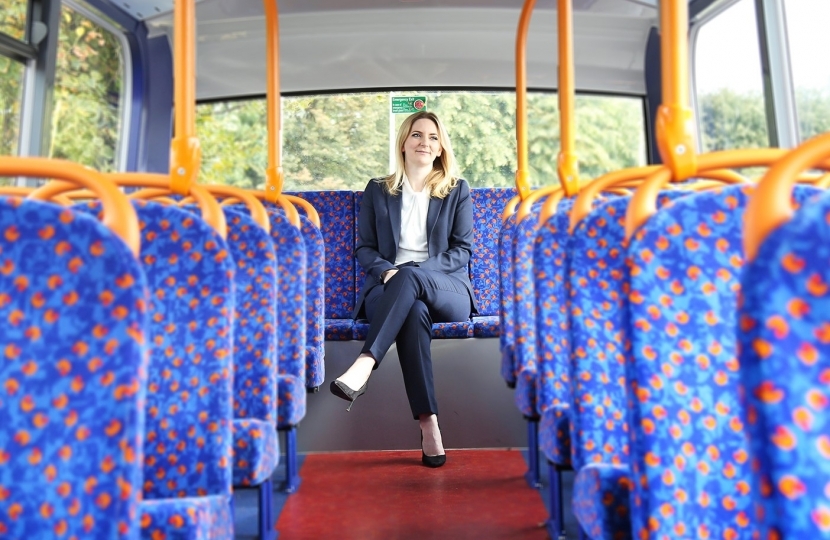
We have been informed by Transport for London (TfL) that, as of Saturday 11 July, the temporary bus capacity limits have been increased and, now buses have returned to front door boarding, bus drivers will now be taking payment.
In the below update, the Government Relations Team at TfL have advised that additional safety measures have been introduced to further mitigate the risks of drivers contracting coronavirus from customers and that these have enabled the phased return of front door boarding. As customers will now be boarding from the front of vehicles they are required to touch in with an Oyster, contactless or concessionary card when they board.
As the Government's social distancing guidance has been updated the capacity of buses has also increased. TfL advise that double-decker buses will now be able to carry 30 passengers while single-decker buses will carry either 1 or 14 passengers. The capacity of buses will be marked on signs and drivers are able to exercise discretion in allowing more customers to board, so long as they are travelling in household groups. Where buses are operating at capacity a one customer off, one customer on policy will be applied.
In accordance with Government guidelines, customers are required to wear a face covering when using public transport and should sit separately unless travelling within their household group. People should use active travel, such as walking or cycling, where possible, wash their hands before and after journeys and look to avoid peak times.
The full update from TfL is provided below:
Good afternoon,
I am writing to let you know that, as of Saturday 11 July, all London buses are now taking payments and the temporary capacity limits have increased.
Following the temporary changes made to protect drivers and customers from coronavirus, nearly all buses have returned to front door boarding. Customers are now required to touch in with Oyster, contactless and concessionary cards on all buses when they board. A phased reintroduction of revenue collection and front door boarding started in late May. This followed analysis from University College London (UCL), which found the protective measures in place, including sealing off the front of buses to ensure drivers have as little contact with people on board as possible, significantly reduce the risks of contracting coronavirus from customers.
Working closely with UCL, bus operators and Unite the Union, we developed further safety improvements, including closing off the gaps in the driver’s assault screen. This has allowed us to reinstate front door boarding on nearly all of our buses, making social distancing easier for customers as they enter and exit the bus. The requirement to touch in also means we have accurate data on usage, so we can work to ensure safe travel is enabled for everyone. A small number of buses – around 200 New Routemasters - continue to have middle door only boarding, and an additional 200 of these buses still allow boarding through all three doors. Work is underway to convert these buses to front-door boarding.
A huge range of cleaning and hygiene measure have also been introduced across the transport network, which includes all touch points being cleaned with hospital grade disinfectant every day. Customers must also wear face coverings for their entire journey, unless they are exempt. The police and our enforcement officers patrol the network to ensure compliance, and over 10,000 have been stopped from travelling for not wearing a face covering.
The temporary bus capacity limits have now also been increased in line with the Government’s latest social distancing guidance. Double-decker buses can now carry 30 passengers, while single-deckers, depending on size, can carry either 11 or 14 passengers. Signs on buses clearly mark these new passenger limits, and drivers have the discretion to allow more customers on board if they are travelling in household groups. A one customer off, one customer on policy operates on buses at full capacity.
Customers are advised to continue to follow Government guidance, which includes walking or cycling if possible, travelling at quieter times and washing hands before and after journeys. Customers on buses are advised to sit individually in each pair of seats, with the exception of those travelling in household groups. Where possible, customers should sit next to and open bus windows for better ventilation, as well as space themselves out across the bus as much as possible, making use of the upper deck on double decker buses.
I hope this information is helpful. Please don’t hesitate to contact me if you have any questions.
Kind regards,
Government Relations Officer


